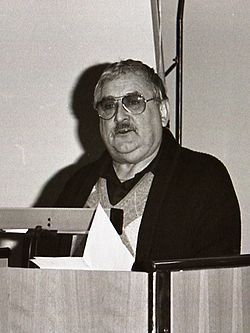Career

Much of Myrberg's writing appeared under the pseudonym of Svarta Masken (The Black Mask). After training to be a photoengraver, she found work at a photography studio and a Stockholm newspaper. Her debut as a poet was the 1919 collection Svarta Maskens Dårdikter (The Black Mask’s Idiot Poems). She published several volumes of poetry and humor, [1] including two books about Willy Anderson, a boy from the south side of Stockholm. [2] [3] The second of these was filmed as the 1929 movie “Ville Andesons Äventyr” (Willy Anderson’s Adventure). She also contributed articles and poems to the humor magazine Kasper. [1]
Myrberg wrote the lyrics for the well-known songs Lördagsvalsen (The Saturday Waltz) and Livet I Finnskogarna (Life in the Finnish Woods). Her works were recorded in America by Gustav Fonandern, Arvid Franzen, Olle i Gråthult and the Hjalmar Peterson Orchestra. [4] Hjalmar Peterson published her texts in his songbooks. [5] In 1972 the Swedish actor John Harryson recorded an album of old-time Swedish comedy with three songs by Svarta Masken: Bröllopet i Flänga, Lördagsvalsen and Stora fötter. [6]


